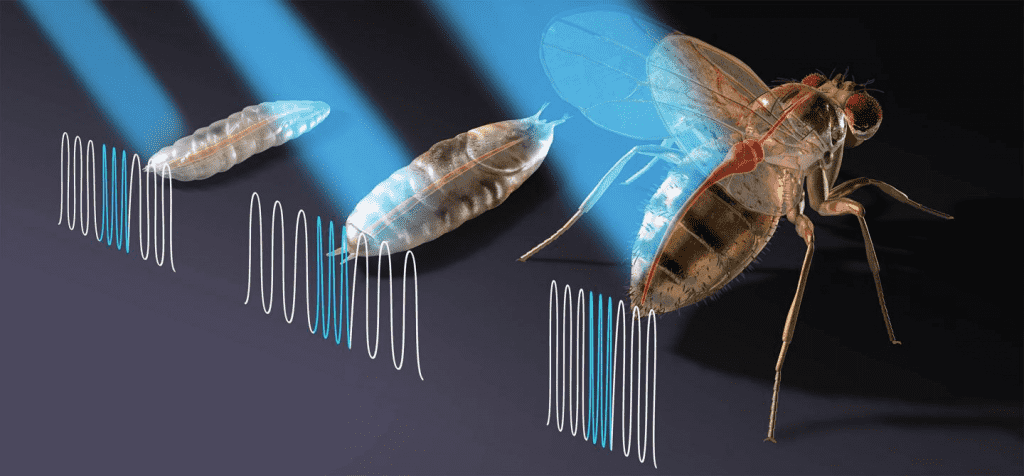Blue light has been a cause of significant concern among researchers due to its harmful effects. Do you know that the light emitted by the sun also contains blue light in larger proportion, having very short high energy wavelengths? Hence, research has been conducted in order to determine the effects of blue light on humans as well as on fruit flies. It turned out that blue light can become a cause of biological aging among fruit flies and can cause significant damage to their cells. Furthermore, it has been revealed that constant exposure of human beings to blue light could lead to certain eye and brain diseases as well. The research has been published in Frontiers in Aging.

In light of this research, it has been concluded that the blue light to which fruit flies have been usually exposed is more intense than we normally encounter. An experiment has been conducted in this research in which the fruit flies have been kept off in blue light for 10-14 days. It has been concluded that “metabolites” present in their bodies showed differences in their levels as compared to those flies which have been retained in constant darkness. The findings of this research suggest that the cells in fruit flies that have been exposed to blue light are subjected to perform at “less than optimum levels” and start aging rapidly.

According to the molecular biologist Jadwiga Giebultowicz from Oregon State University, “We are the first to show that the levels of specific metabolites – chemicals that are essential for cells to function correctly – are altered in fruit flies exposed to blue light.” It has to be noted that this blue light was more intense than the usual one. On the other hand, talking about the effects of blue light on human beings sparked a heated debate among researchers.
It has been demonstrated that the light emitted from our cell phones, tablets, televisions, etc. is also a blue light and when human beings are exposed to it for longer periods of time over shorter distances, then it would intervene with the normal cellular processes and disturb our “natural circadian rhythms.” Moreover, it has also been discussed in the research that using mobile phones before sleep can cause sleeping issues, eventually leading to insomnia.

Giebultowicz said, “LEDs have become the main illumination in display screens such as phones, desktops, and TVs, as well as ambient lighting, so humans in advanced societies are exposed to blue light through LED lighting during most of their waking hours. The signaling chemicals in the cells of flies and humans are the same, so there is potential for negative effects of blue light on humans.” However, still there is no confirmation as to what extent blue light can cause damage to human cells, unlike fruit flies.
To that end, researchers are looking forward to collecting further evidence regarding the variational effect of blue light on human cells.


